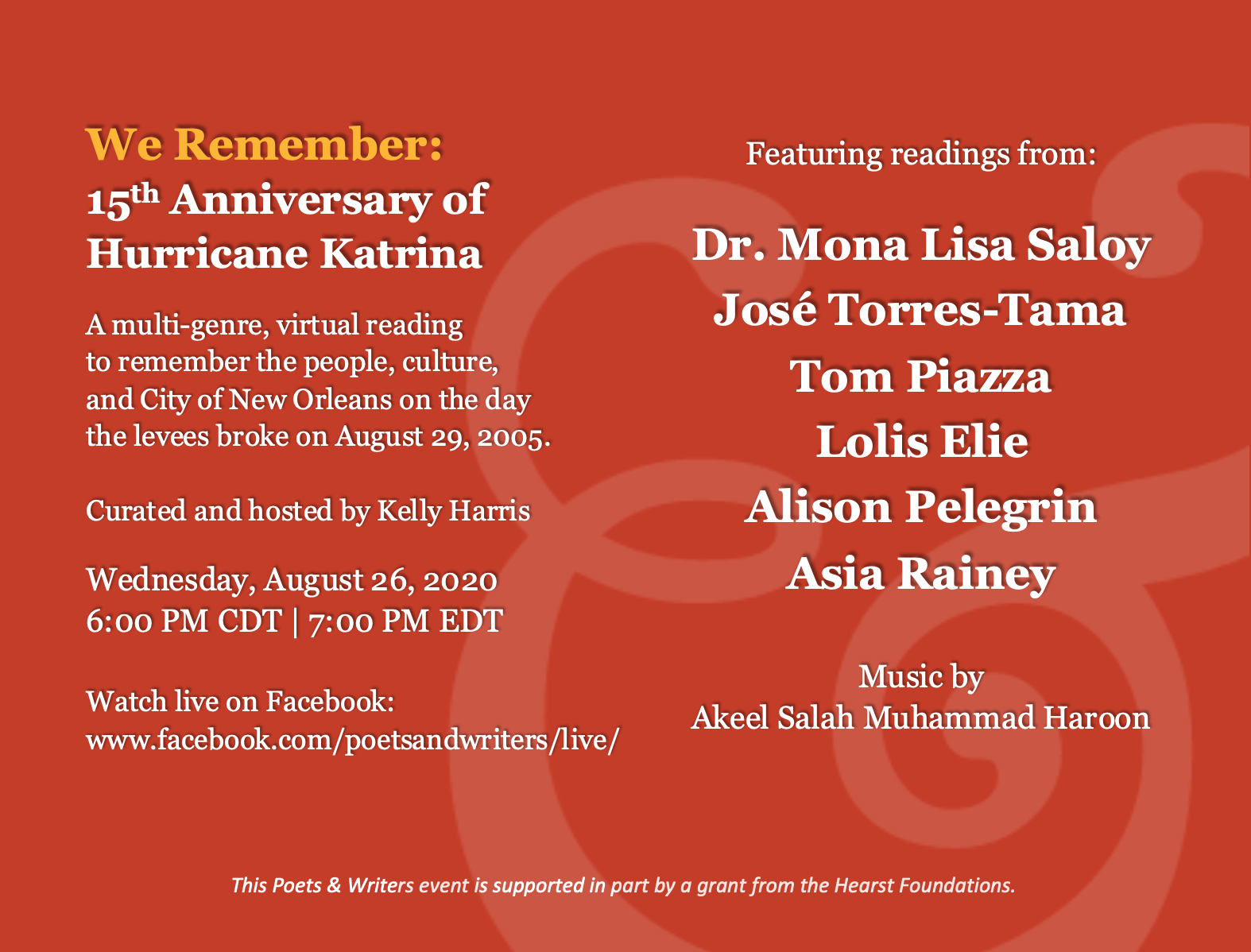Opportunities for poets and fiction writers abound in August’s last contest deadlines. These awards all feature a cash prize of $1,000 or more and close on August 30 or August 31. Good luck!
Aesthetica Creative Writing Award: Two prizes of £1,000 (approximately $1,235) each and publication in the Aesthetica Creative Writing Annual are given annually for a poem and a short story. The winner in poetry also receives a membership to the Poetry Society in London, and the winner in short fiction receives a consultation with the literary agency Redhammer Management. Both winners receive a subscription to Granta and a selection of books from Bloodaxe Books and Vintage Books. Deadline: August 31. Entry fee: £12 (approximately $15) for poetry or £18 (approximately $22) for a short story.
Baton Rouge Area Foundation Ernest J. Gaines Award for Literary Excellence: A prize of $15,000 is given annually to an emerging African American writer for a book of fiction published in the current year. The winner also receives travel and lodging expenses to attend an awards ceremony and participate in educational outreach events in Baton Rouge, Louisiana, in January 2021. Deadline: August 31. Entry fee: none.
Black Lawrence Press St. Lawrence Book Award: A prize of $1,000 and publication by Black Lawrence Press is given annually for a debut collection of poems or short stories. The editors will judge. Deadline: August 31. Entry fee: $25.
Ex Ophidia Press Poetry Book Prize: A prize of $1,000, publication by Ex Ophidia Press, and 15 author copies is given annually for a poetry collection. Sharon Cumberland, Gregory C. Richter, and Richard-Gabriel Rummonds will judge. Deadline: August 31. Entry fee: $25.
Gemini Magazine Flash Fiction Contest: A prize of $1,000 and publication in Gemini Magazine is given annually for a short short story. The editors will judge. Deadline: August 31. Entry fee: $6.
Grid Books Off the Grid Poetry Prize: A prize of $1,000 and publication by Grid Books is given annually for a poetry collection by a writer over the age of 60. Marilyn Nelson will judge. Deadline: August 31. Entry fee: $25.
Journal of Experimental Fiction Kenneth Patchen Award: A prize of $1,000 and publication by Journal of Experimental Fiction and JEF Books is given annually for an innovative novel. Deadline: August 31. Entry fee: $25.
Masters Review Short Story Award for New Writers: A prize of $3,000 and publication in Masters Review is given twice yearly for a short story by a writer who has not published a novel (writers who have published story collections are eligible). The winning story will also be sent to literary agents from the Bent Agency, Carnicelli Literary Management, Compass Talent, Fletcher & Company, and Sobel Weber for review. Deadline: August 30. Entry fee: $20.
Munster Literature Centre Fool for Poetry International Chapbook Competition: A prize of €1,000 (approximately $1,090) and publication by the Munster Literature Center is given annually for a poetry chapbook. The winner will also receive accommodations to give a reading at the Cork International Poetry Festival in March 2021. Deadline: August 31. Entry fee: €25 (approximately $27).
Omnidawn Publishing Open Book Prize: A prize of $3,000, publication by Omnidawn Publishing, and 100 author copies is given annually for a poetry collection. Brian Teare will judge. Deadline: August 31. Entry fee: $27.
Talking Gourds Fischer Prize: A prize of $1,000 is given annually for a single poem. The winner also receives $500 in travel expenses to attend the Talking Gourd Awards in Telluride, Colorado, in October. Claire Blotter will judge. Deadline: August 30. Entry fee: $10 ($25 for three poems).
University of New Orleans Press Publishing Lab Prize: A prize of $10,000 and publication by University of New Orleans Press is given annually for a short story collection or a novel. Deadline: August 31. Entry fee: $28.
Utica College Eugene Nassar Poetry Prize: A prize of $2,000 is given annually for a poetry collection published in the previous year by a resident of upstate New York. The winner will also give a reading and teach a master class at Utica College in April 2021. Deadline: August 31. Entry fee: none.
Visit the contest websites for complete guidelines, and check out the Grants & Awards database and Submission Calendar for more contests in poetry, fiction, and creative nonfiction.





